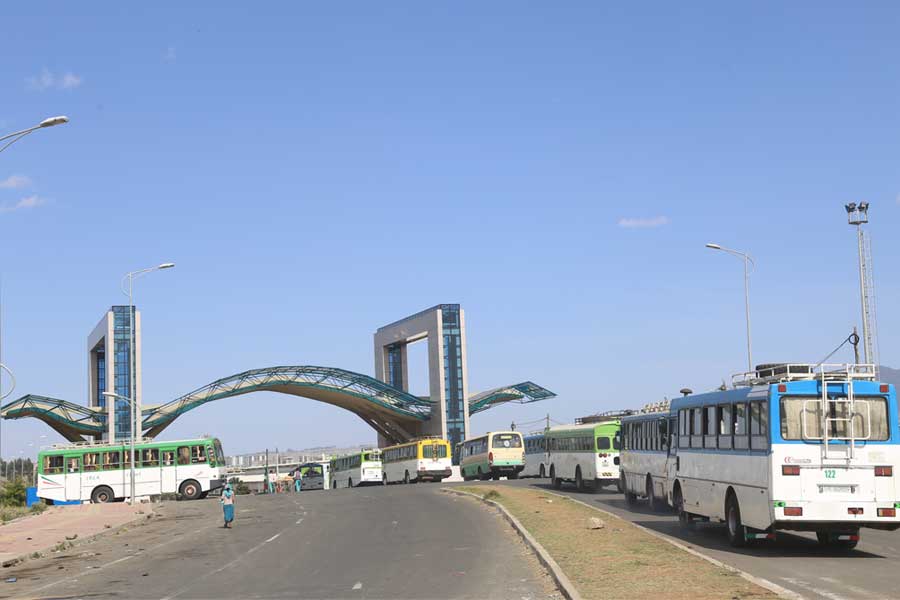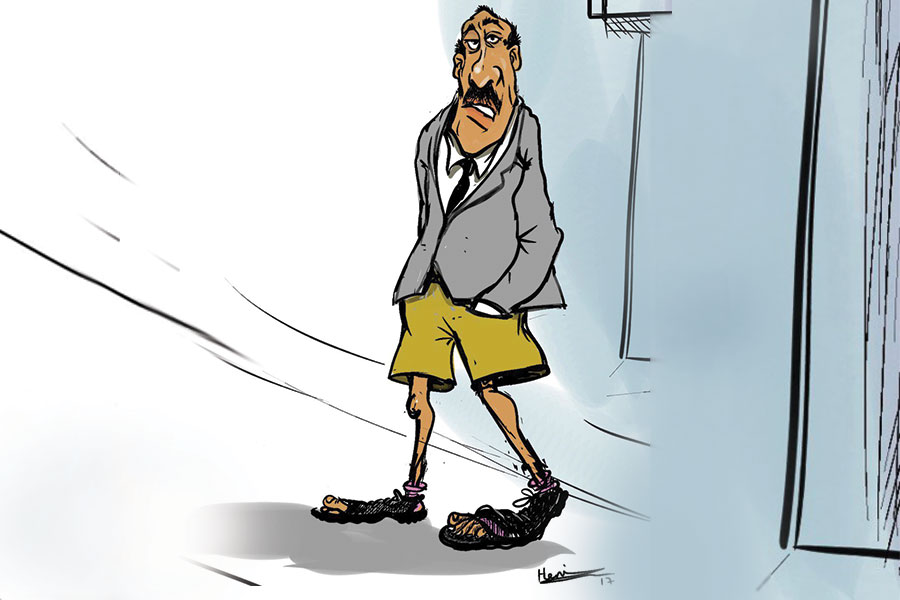
Radar | Jul 29,2023
Repeated theft has plagued electric power transmission lines in Amhara Regional State with the latest attempt claiming the life of a woman in the Dejen Tika district, 270km from the capital.
The incident that unfolded two months ago at Tika in Dejen had suspects working through the night resulting in a power outage for seven hours.
At the break of dawn, a 14-year-old going to church with his mother sees hanging power lines ripe for the picking. The ill-advised attempt electrocutes him while the effort to rescue the boy leaves his mother deceased.
Following a successful disruption of the electric flow, robbers have a limited window of time until maintenance workers are dispatched to investigate the power outage, they select difficult terrain inaccessible from the main road.
After shorting the power lines by interrupting transmission temporarily, robbers cut off the wires and sell them off dirt cheap to "Qurales', traditional barter traders who buy scraps of metal.
"It just keeps on increasing," said Estifanos Demeke, manager at EEU Dejen District.
He emphasized the need to bring more attention to the repeated assault on the electrical infrastructure as there could be a possible organised group targeting electrical infrastructure.
"While our priorities should be reaching more rural areas, we are stuck fixing up the aftermath of thefts," Estifanos told Fortune.
The manager suggested that there should be a way to somehow demoralise robberies to public infrastructure in some public shaming mechanism as the threat of jail seems insufficient at this point.
The robbers were attempting to get away with 1,400 meters of transmission lines until villagers in the area caught up to them.
Highly indebted state-owned Ethiopian Electric Power (EEP) currently has 17,000 Km of high voltage transmission lines and 163 substations operational.
Worku Shemelis, an inspector at Dejen's Police Department, downplayed the incidents as half-hearted attempts by misguided youth.
"There is no organized assault," emphasized the inspector. While he confirmed the death of the mother around Tika, the inspector attributed the loose transmission lines that caused the death of the mother to lack of maintenance to loosely hanging power lines.
He also revealed that two individuals attempting to cut the towers in the Abay Sheleqo area were caught in the act and are currently in custody.
While theft of the national electric grid is nothing new, it was largely concentrated in Welayta and Gamo of the Southern Regional States. The rise within Amhara regional State is a recent phenomenon.
Wubet Abe, transmission director of EEP in North West region says there is a significant increase in the number of theft of steel that forced them to hang it up to 40 meters high in some areas.
He explained that if the robbers had managed to successfully cut the steel tower in the Abay Sheleko area power supply across several regions would have been disrupted.
The two transmission lines (Debre Markos -Sulutlta) and (Debre Markos -Gebre Guracha) in the area are capable of carrying up to 1000 MW in peak cycles, a serious disruption to these would have disastrous consequences.
The entire West Amhara region along with Gondar, Gojam and even exports to Sudan and parts of the capital would be disrupted if damage occurs to the 280 Km long transmission line.
The current administration is working towards universal electrification by the late 2020s with multiple projects underway not the least of which is Grand Ethiopian Renaissance Dam (GERD) as current access to electricity is about 60pc nationally.
"The electric company can't fight this alone," says Tigabu Atalo an energy sector veteran with decades of experience.
He also explained that significant damage to a certain location will not be contained to that specific vicinity, rather disrupting transmission across the entire grid. A mass awareness creation campaign is required according to Tigabu, as these public infrastructures belong to the entire populace.
According to the expert, tackling the issue without fostering a sense of ownership in local communities will be a daunting task.
"There are no technical solutions that can be provided," he said.
PUBLISHED ON
Mar 18,2023 [ VOL
23 , NO
1194]

Radar | Jul 29,2023

Radar | Sep 06,2020

Fortune News | Jun 27,2020

Covid-19 | Mar 28,2020

Radar | Nov 28,2020

Editorial | Jul 18,2020

Radar | Jan 01,2023

Editorial | Aug 09,2025

Radar | Dec 19,2021

My Opinion | Jun 15,2019

Dec 22 , 2024 . By TIZITA SHEWAFERAW
Charged with transforming colossal state-owned enterprises into modern and competitiv...

Aug 18 , 2024 . By AKSAH ITALO
Although predictable Yonas Zerihun's job in the ride-hailing service is not immune to...

Jul 28 , 2024 . By TIZITA SHEWAFERAW
Unhabitual, perhaps too many, Samuel Gebreyohannes, 38, used to occasionally enjoy a couple of beers at breakfast. However, he recently swit...

Jul 13 , 2024 . By AKSAH ITALO
Investors who rely on tractors, trucks, and field vehicles for commuting, transporting commodities, and f...

Nov 1 , 2025
The National Bank of Ethiopia (NBE) issued a statement two weeks ago that appeared to...

Oct 25 , 2025
The regulatory machinery is on overdrive. In only two years, no fewer than 35 new pro...

Oct 18 , 2025
The political establishment, notably the ruling party and its top brass, has become p...

Oct 11 , 2025
Ladislas Farago, a roving Associated Press (AP) correspondent, arrived in Ethiopia in...